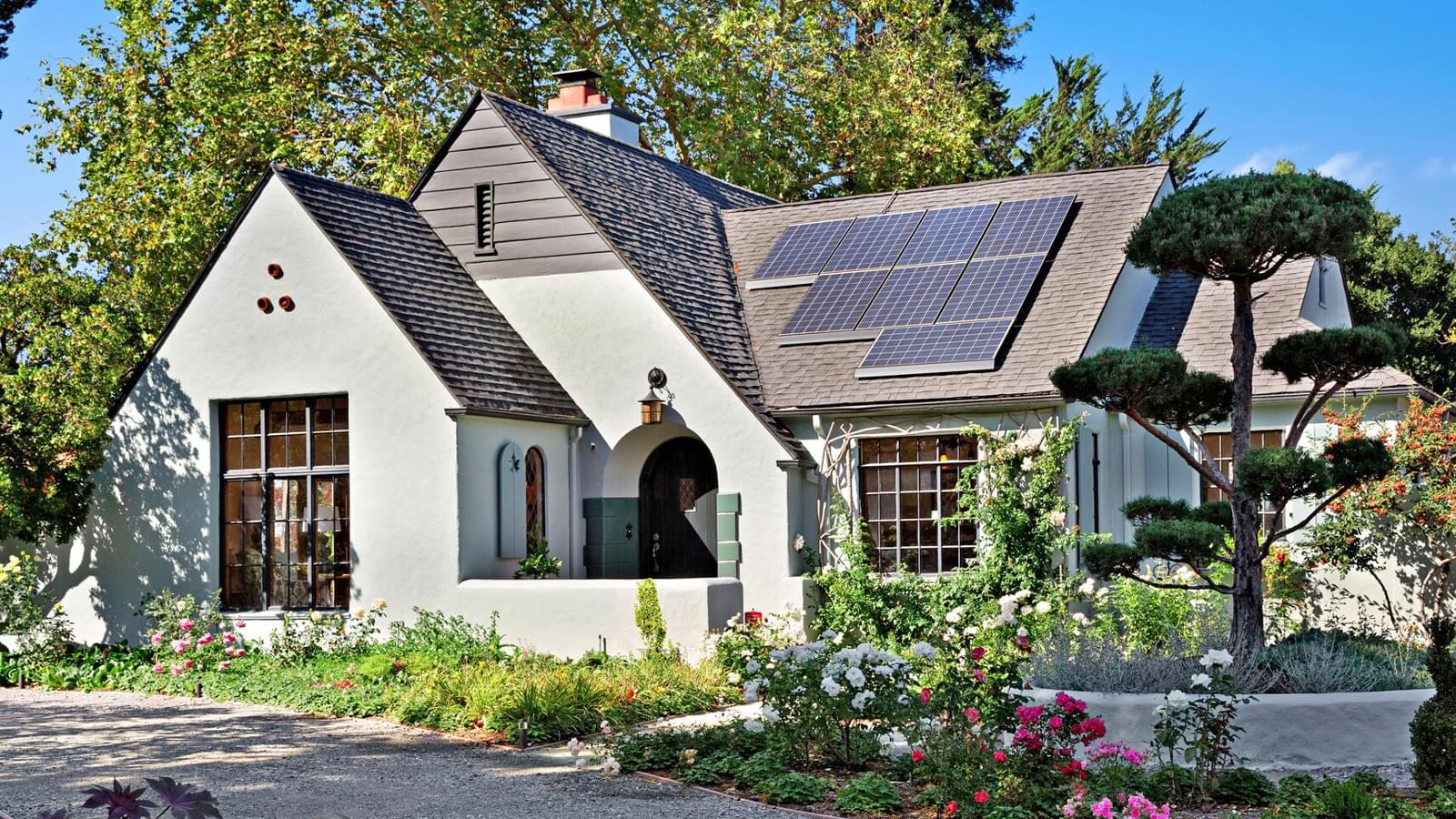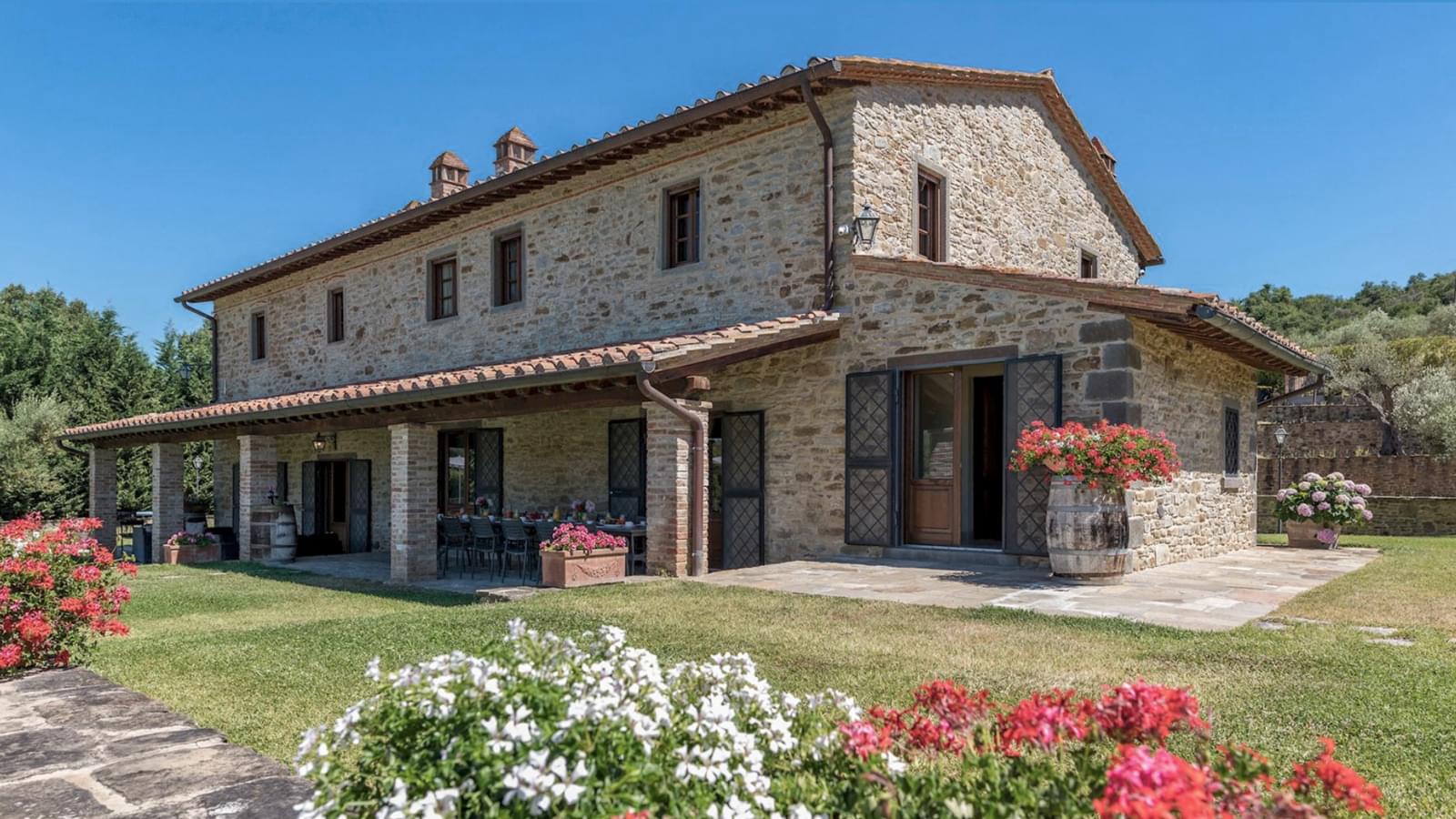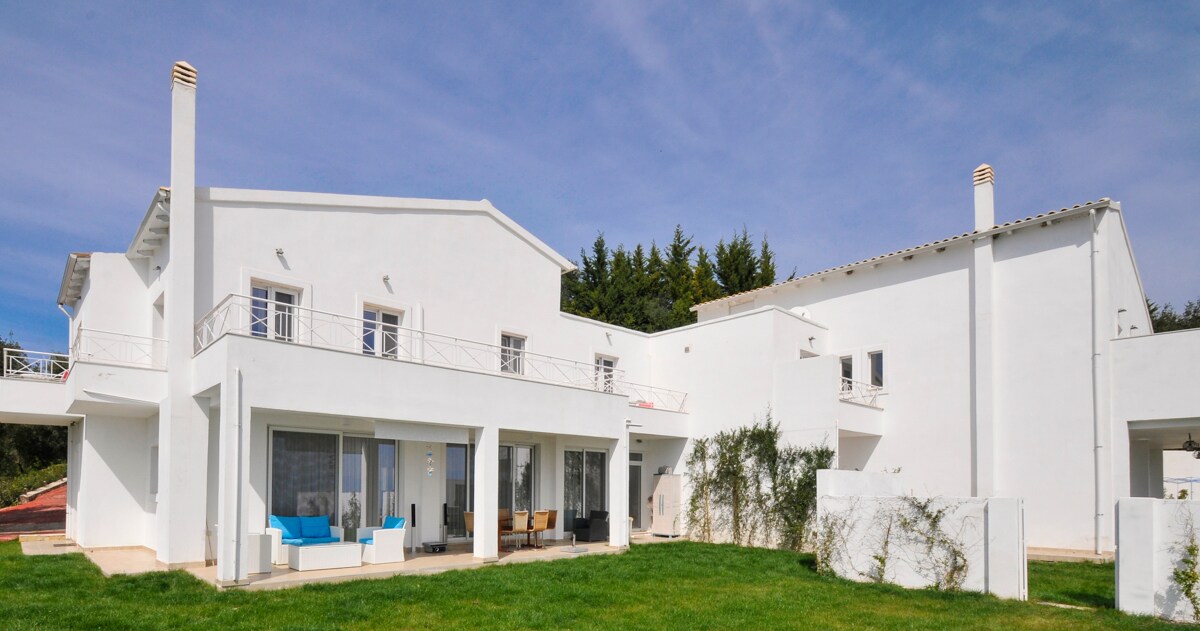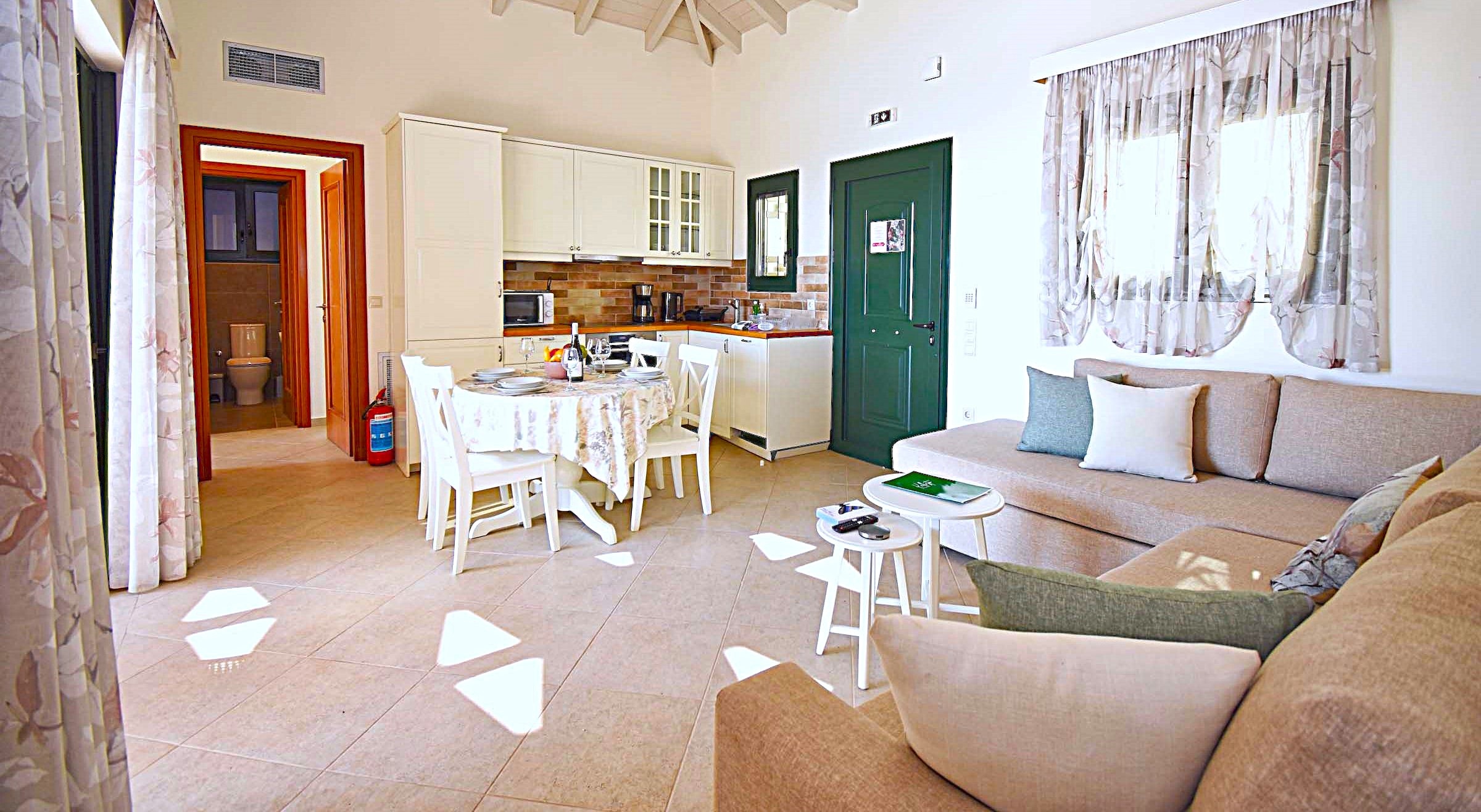Epirus Vacation Rentals
Explore 722 rental homes and villas in Epirus for your next vacation or business travel. With private vacation home rentals, enjoy a more personalized stay and a wide range of amenities such as Homes with Pools, Air Condition Homes and Best Affordable Homes. With a wide range of homes to offer, pricing can start as low as $42 per night with homes containing as many as 9 bedrooms and 10 bathrooms. However you're looking to experience your stay, Homes and Villas by Marriott has your next vacation home waiting.
Types of vacation rentals in Epirus
Available properties in Epirus
Get to know Epirus, Greece
Here are some things to know to support your visit:
Epirus Overview
Nestled in the northwestern corner of Greece, Epirus is a hidden gem where the majesty of nature meets the whispers of ancient history. Imagine waking up in your own private home, nestled among rugged mountains and verdant valleys, with the luxury of a sparkling swimming pool at your doorstep. Epirus offers an array of private home rentals, many of which are pet-friendly, ensuring that every member of your family can enjoy the serenity of this enchanting region.
The crown jewel of Epirus is undoubtedly the Vikos Gorge, renowned as one of the deepest canyons in the world. Hiking enthusiasts will revel in the trails that wind through the Vikos-Aoos National Park, leading to the awe-inspiring Dragon Lakes, shrouded in local legend. For the adventurous, the Aoos River beckons with its exhilarating rafting and kayaking opportunities.
Step back in time as you wander through the stone-clad villages of Zagori, where the architecture and cobblestone streets evoke a bygone era. These villages are connected by arched stone bridges, adding to the region's storybook charm. The ancient theater of Dodona, once a revered oracle, invites you to tread where pilgrims once sought divine guidance amidst the ruins that resonate with historical significance.
Epirus' coastline is a slice of paradise, with the Ionian Sea's azure waters lapping at pristine beaches. The picturesque town of Parga, with its vibrant houses and Venetian castle, offers a tranquil retreat where you can indulge in the freshest seafood while gazing out at the sea.
For those drawn to spiritual landmarks, Epirus is dotted with Byzantine monasteries and churches, such as the Monastery of Panagia Parigoritissa in Arta, each a testament to the region's deep religious roots. The frescoes and architectural details within these sacred walls are a sight to behold.
Culinary delights abound in Epirus, where traditional dishes like handmade filo pastry pies, local cheeses, and robust stews await. The region's tsipouro, a spirited local drink, is the perfect accompaniment to your gastronomic journey.
Choosing Epirus as your next getaway means embracing an authentic experience of Greek culture and natural splendor. With the comfort of a private home, complete with a pool and the warm embrace of the Mediterranean sun, your stay in Epirus will be as unforgettable as the landscape itself.
Cultural Attractions in Epirus
Epirus, located in the northwestern part of Greece, is a region that offers a rich tapestry of cultural experiences, making it an ideal destination for travelers with a deep interest in the arts, history, and local customs. This area, known for its rugged mountains and the pristine Vikos–Aoös National Park, also boasts a wealth of cultural treasures waiting to be explored.
Begin your cultural journey in Ioannina, the capital of Epirus. The city's history is palpable in its old town, where the imposing Ioannina Castle stands. Within its walls, you'll find the Byzantine Museum, which houses an impressive collection of religious icons and artifacts that tell the story of the region's Byzantine and post-Byzantine history. The castle also hosts the Municipal Ethnographic Museum, where you can delve into the local customs and traditional life of Epirus.
Art enthusiasts will appreciate the Epirus Folklore Museum, located in a beautifully restored mansion. It showcases a vast array of folk art and crafts, including textiles, costumes, and silverwork, offering a glimpse into the region's artistic heritage. The city is also home to the Silversmithing Museum, which celebrates Ioannina's long-standing tradition of silver crafting.
For a unique musical experience, visit during the Ioannina Cultural Summer Festival, where live music performances range from traditional Epirote folk music to classical concerts. The ancient theater of Dodona, one of the most important and best-preserved ancient Greek theaters, is a breathtaking venue for performances during the summer months.
History buffs will be drawn to the archaeological site of Dodona, which is considered the oldest Hellenic oracle, predating even the oracle of Delphi. The site includes the ruins of the sanctuary dedicated to Zeus and the theater, which once hosted dramatic performances that were an integral part of ancient Greek culture.
Epirus is also known for its distinctive local customs and festivals. The region's villages celebrate various panigiria, traditional festivals that often include music, dancing, and feasting. These events provide an authentic experience of Epirote hospitality and the vibrant community spirit.
The culinary traditions of Epirus are another cultural highlight. Local dishes often feature pies with handmade filo pastry, such as the famous pita, and the region's cheeses, like the sharp and tangy feta, are not to be missed. Enjoying these local delicacies in a traditional taverna while listening to the sounds of the clarinet and violin is a quintessential Epirote experience.
In Epirus, the blend of natural beauty and cultural depth creates a travel experience that is both enriching and unforgettable. It's a region where the past and present converge, inviting visitors to immerse themselves in the timeless traditions and artistic expressions of Greece.
Family friendly activities in Epirus
Epirus, Greece, is a treasure trove of experiences that will delight children and provide an unforgettable family adventure. Nestled in the northwest of Greece, this region combines natural beauty with cultural richness, offering activities that cater to young adventurers and curious minds.
Start your journey in the Pindus National Park, also known as the Valia Calda. This park is a paradise for nature-loving families, with its dense forests, rushing rivers, and diverse wildlife. Children can become junior explorers, hiking along safe trails and spotting animals like brown bears, wolves, and a variety of birds. The park's educational center provides interactive learning experiences about the local ecosystem.
For a magical experience, visit the mythical Acheron River. According to ancient Greek mythology, this river was one of the five rivers of the Greek underworld. Today, it's a place where families can enjoy rafting, kayaking, or simply splashing in the crystal-clear waters. The river's gentle sections are perfect for young children, and the surrounding scenery is breathtaking.
The ancient theater of Dodona, one of the oldest in Greece, is a must-see for families. Children can marvel at the grandeur of this historic site and learn about its significance as a center of worship to Zeus and Dione. The theater's acoustics are still impressive, and kids will love testing their voices against the backdrop of history.
For a taste of local life, visit the villages of Zagori. These charming stone-built villages are connected by arched bridges and cobblestone paths, offering a glimpse into traditional Epirus life. Children can learn about local folklore and crafts, and families can enjoy delicious regional cuisine at a local taverna.
The Vikos Gorge, one of the deepest in the world, provides a dramatic setting for family hikes. There are routes suitable for all ages, and the views are spectacular. Along the way, you might stop at the Ovires natural pools near the village of Papigo, where kids can take a refreshing dip in the summer months.
Lastly, don't miss the opportunity to sail on the Ionian Sea. Boat trips can take you to the enchanting islands of Corfu, Paxos, and Antipaxos, where children can build sandcastles on pristine beaches, snorkel in clear blue waters, and discover hidden coves.
Epirus is a region that offers families the chance to bond over shared adventures, whether it's through exploring ancient ruins, enjoying the great outdoors, or simply relaxing by the sea. It's a destination that will captivate children's imaginations and leave them with stories to tell for years to come.
Outdoor activities in Epirus
Epirus, located in the northwestern part of Greece, is a region of rugged mountains, lush valleys, and crystal-clear rivers, making it an ideal destination for nature lovers and outdoor enthusiasts. The area is renowned for its natural beauty and offers a plethora of activities for those seeking to immerse themselves in the great outdoors.
The Pindus National Park, also known as Valia Calda, is a haven for hikers and wildlife watchers. This park is part of the larger Pindus mountain range and is characterized by dense forests, alpine meadows, and rushing rivers. It's a biodiversity hotspot where you might catch a glimpse of rare species such as the brown bear, wolves, and the Balkan chamois. There are numerous trails ranging from easy walks to challenging treks, offering something for every level of hiker.
The Vikos Gorge, listed in the Guinness Book of Records as the deepest canyon in the world in proportion to its width, is another must-see natural wonder in Epirus. The gorge is part of the Vikos-Aoos National Park and offers spectacular views and a challenging hike that will lead you through stone bridges, traditional villages, and alongside the Voidomatis River, known for its striking blue-green waters.
For those who enjoy water sports, the Voidomatis River is also a prime spot for rafting. The river's crystal-clear waters are ideal for both beginners and experienced rafters, and the journey provides an exhilarating way to experience the region's natural beauty.
The region's numerous alpine lakes, such as the Dragon Lake (Drakolimni) of Tymfi, are also popular destinations. These are accessible via mountain trails and offer stunning vistas and the opportunity for peaceful reflection in a serene, high-altitude environment.
Epirus is also home to several traditional stone villages, such as Zagorochoria, a cluster of 46 quaint villages. These villages are not only culturally rich but also serve as gateways to the surrounding natural attractions. They offer cozy accommodations and local cuisine, allowing visitors to relax after a day of adventure.
For those interested in a more leisurely outdoor experience, the region's thermal springs, like those in the village of Loutra Pozar, provide a soothing and therapeutic escape amidst nature.
In summary, Epirus is a treasure trove of natural wonders and outdoor activities. From hiking and rafting to simply enjoying the tranquility of its pristine landscapes, Epirus promises an unforgettable adventure for all who visit.
Weather in Epirus
Epirus, a region in northwestern Greece, is known for its diverse climate, which varies from the coastal areas to the mountainous zones. The weather in Epirus can be quite different from the typical Mediterranean climate found in other parts of Greece, due to its unique topography.
Winter in Epirus, from December to February, can be quite cold, especially in the mountainous areas like the Zagori region, where snowfall is common and temperatures can drop below freezing. This creates a winter wonderland that is perfect for those interested in mountain sports or simply enjoying the serene, snowy landscapes. Coastal areas, such as Preveza or Parga, experience milder winters with less snow but still cool temperatures.
Spring, from March to May, brings a gradual warming with temperatures ranging from 10°C to 20°C. This is a beautiful time to visit as the region's abundant flora begins to bloom, and the weather is generally mild, though rain showers are still common. The countryside is particularly lush, making it an excellent time for hiking and exploring the natural beauty of Epirus.
Summer, from June to August, is the warmest and driest season, with temperatures often reaching above 30°C, particularly in July and August. The coastal areas enjoy a refreshing sea breeze, which makes the heat more bearable. This is the peak season for visitors, especially those looking to enjoy the stunning beaches of the Ionian coast or the cooler retreats of the mountainous areas.
Autumn, from September to November, sees temperatures gradually decrease, ranging from 15°C to 25°C. The region experiences increased rainfall during this time, but the weather remains pleasant, and the changing colors of the foliage provide a beautiful backdrop for outdoor activities. It's a great time to visit for those who prefer fewer tourists and a more tranquil experience.
The most popular weather conditions in Epirus are prevalent during the late spring to early summer and early autumn, when the temperatures are comfortable, and the landscape is at its most vibrant. The climate is especially pleasant in May and September, offering an ideal balance for both sightseeing and relaxation. Whether you're looking to explore ancient ruins, enjoy the pristine beaches, or trek through the Pindus Mountains, Epirus offers a rich and varied climate that caters to a wide range of interests throughout the year.
Transportation in Epirus
Epirus, a region in northwestern Greece, is a treasure trove of natural beauty and ancient history, offering a variety of transportation options for visitors. The region is not served by its own international airport, so travelers typically arrive via the Ioannina National Airport for domestic flights or through international airports in nearby cities such as Corfu, Preveza, and Thessaloniki. From these points, car rentals, buses, or taxis can be used to reach Epirus.
The road network in Epirus is well-developed, with the Egnatia Odos (E90) highway providing a swift connection across the region. Car rental is a popular option for those who wish to explore the diverse landscapes at their own pace. The region's mountainous terrain and scenic routes make for an exhilarating driving experience.
For those preferring public transportation, KTEL buses are the mainstay of intercity travel within Greece and offer regular services connecting Epirus with major cities and towns. The buses are comfortable and reasonably priced, making them a good option for travelers without a car.
Within Epirus, the city of Ioannina serves as a central hub from which to explore the surrounding areas. Ioannina itself is quite walkable, especially in the historic city center where the castle, lake, and museums are located. However, to fully experience the region's attractions, such as the Vikos Gorge, the Pindus National Park, and the ancient theater of Dodona, having access to a car or joining organized tours is advisable.
For those staying in coastal areas like Parga or Sivota, the towns are small enough to explore on foot, and local taxis are available for short trips. Boat rentals and tours are also popular for visiting the stunning beaches and islands dotting the Ionian coast.
Epirus is not typically known for its cycling infrastructure, but for the adventurous, mountain biking can be an exciting way to experience the rugged terrain. However, this is recommended for more experienced cyclists due to the challenging landscapes.
In summary, Epirus offers a mix of transportation options suitable for various travel styles. While the region's towns and villages can be quite walkable, to truly embrace the breadth of Epirus's natural and historical sites, having access to a car or utilizing bus tours is recommended.











